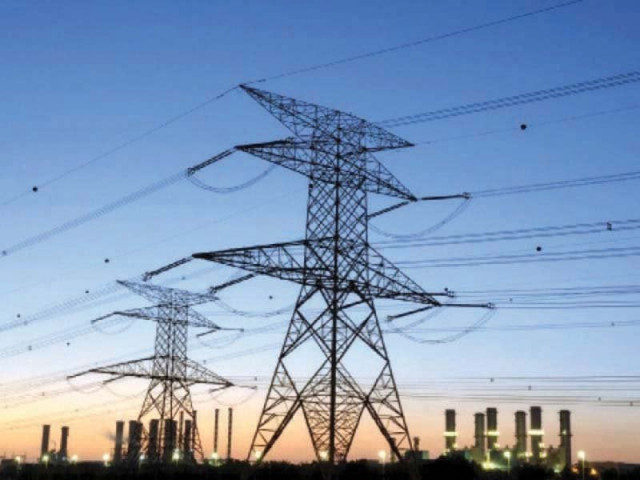NEPRA allows K-Electric to raise tariff
Approves increase of up to Rs1.97 per unit for three quarters

The National Electric Power Regulatory Authority (Nepra) has allowed K-Electric to increase power tariff up to Rs1.97 per unit for three quarters.
At present, the government implements the policy of uniform tariff for all power distribution companies. The same policy is also applied to K-Electric.
With the policy of uniform consumer tariff across the country, these variations will not impact consumers and will be included in the tariff differential subsidy by the government. However, Nepra allowed K-Electric to reduce power tariff by Rs0.02 per unit for one quarter.
Nepra determined the quarterly tariff variation for the period April 2019 to March 2020, applicable to the period July 2019 to June 2020.
The regulator allowed a tariff increase of Rs0.78 per unit for the April to June 2019 quarter, Rs1.97 per unit for July to September 2019 and Rs0.61 per unit for January to March 2020.
However, it decided to reduce the electricity price for the October to December 2019 quarter by Rs0.02 per unit.
Read: Improve power management system for Karachi, Nepra tells KE
Nepra, in a statement, said that since the federal government had a uniform tariff policy across the country, including for K-Electric consumers, the impact of aforementioned quarterly adjustments would be adjusted in the tariff differential subsidy for K-Electric. Thus, they may not have any impact on the consumers.
The authority, among other adjustments, did not allow the write-off claim of K-Electric worth Rs4.051 billion.
The determinations are in accordance with the mechanism given in K-Electric’s multi-year tariff whereby changes in fuel prices, generation and power purchase mix are passed through along with certain annual adjustments.
It is important to note that K-Electric has already incurred these costs and have paid the costs to fuel suppliers and for external power purchases.
Pursuant to a notification of the determined multiyear tariff, K-Electric filed its quarterly adjustment request on account of power purchase price (PPP), indexation of O&M costs, adjustment of transmission and distribution losses, etc for the quarters ended June 2019 and September 2019 along with supporting documents.
In addition, K-Electric also requested write-offs amounting to Rs4, 051 million (gross) for FY2018-19. The net amount claimed by K-Electric after accounting for the recovery made through the write-off component built in the multi-year tariff for 2017 i.e. Rs2, 994 million, was Rs1, 056 million.
Amreli Steels, as an intervener, said that Nepra at best could only allow and determine those fuel price adjustments and quarterly adjustments to the power distribution companies that had been filed to the authority as per the timeframe.
The Karachi Chamber of Commerce and Industry (KCCI) highlighted the issues under the previous multi-year tariff ie increase in tariff by Rs0.15 per kilowatt-hour (kWh), retrenchment of around 4,500 employees and non-addition of 1,000 megawatts of generation capacity.
It said that K-Electric’s profit for FY19 increased to Rs17.3 billion as compared to Rs12.3 billion in FY18, but it was surprising that the company worked out zero profit to be clawed back.
It asked Nepra to calculate the exact amount owed by K-Electric and refuse any approval till it was paid to the end-users.
Read more: Govt jacks up power tariff by Rs1.95
K-Electric version
According to a K-Electric spokesperson, Nepra’s latest determination regarding K-Electric’s fuel cost adjustment and tariff differential claims amounts to an additional subsidy of Rs80 billion.
“This amount is for 12 calendar months and while it has been determined by Nepra, it has still not been notified by the government of Pakistan.”
The official added that the payment, which is due to K-Electric, is in addition to the more than Rs130 billion in the past tariff differential claims that have been notified and pending for several years.
“These pending payments have put a strain on the power utility’s cash flow, forcing it to resort to increased borrowing. This caused K-Electric’s finance cost to rise 165% from 2019 to 2020, and is the key reason for plunging the company into a loss of Rs3 billion for FY20, compared to a profit of Rs17 billion in FY19.”
The official added, “It has to be kept in mind that this is the money that the power utility has already spent, in order to ensure that generation is maximized and the power infrastructure is maintained to keep the city of Karachi energised.”


















COMMENTS
Comments are moderated and generally will be posted if they are on-topic and not abusive.
For more information, please see our Comments FAQ